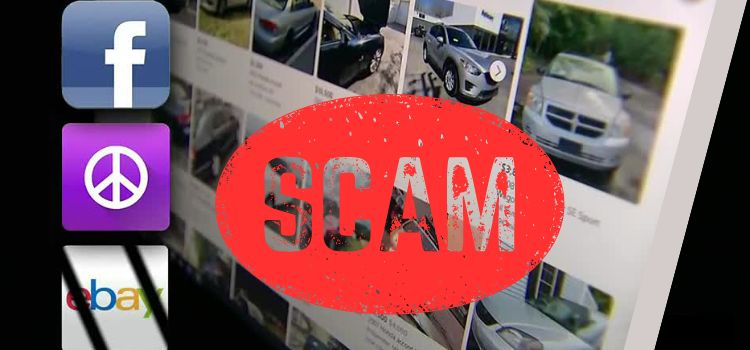Scam artists are now using these tactics to trick people with a photo and a Facebook post
Scammers are now using a simple photo of people’s cars to trick social media users out of their money.
People drive their cars every day — to work, to drop off kids at school — perhaps without realizing that someone could be photographing their car in order to scam the owner, making them think their car was stolen and ask for a reward.
“My trust has been violated, my privacy has been violated,” said the victim of one such fraud incident.
That’s what one SUV owner felt when she saw this photograph of her car on the Facebook page named “Tijuana Linea Roja,” which read: “One THOUSAND DOLLARS reward, I was robbed at gunpoint on Boulevard Insurgentes. They pointed at the driver’s head and then took the car and fled.”
The owner of that vehicle claims the post is a total lie and that her vehicle was not stolen in Tijuana.
The woman asked NBC 7 to hide her identity, since this photo in the post was taken in front of her house in San Diego.
“I have a family so I am worried that we being watched and targeted. Our safety is our concern,” she said.
Given the violence and crime that nobody seems to be able to stop in Tijuana, the Tijuana Citizen Committee for Public Security is not surprised by this type of fraud.
“To commit a fraud, I mean this is something where you have to have some type of intelligence,” said Roberto Quijano from the Tijuana Citizen Committee for Public Security.
It’s the intelligence and creativity that is able to convince people that a car was stolen at gunpoint with a simple photo. That post has almost 300 comments and some users even claim to have seen the same SUV in Tijuana themselves.
“Once they received the call, they call back the victim and ask him, ‘I‘ll give you a reward for finding my car, give me your bank account so I can send you money, give me your full name,'” Quijano said.
The scammers may even ask you to log into a website to enter your bank account info in order to collect the reward of $1,000. That’s something a cybersecurity expert said you should never do.
Neve ever give your bank information over social media. There are services that actually — and we have to be careful with these as well — there are services that actually allow us to login and then it’ll connect our bank account,” said Nikolas Behar, Ph. D. and Adjunct Professor of Cybersecurity at University of San Diego.
The victim said she sent a message to Facebook to remove the post. After explaining the situation, she was told that the message does not violate Facebook rules.
NBC 7 sent a message to the administrator of the Tijuana Linea Roja Facebook page, but we never got a response.









